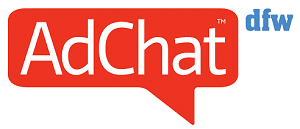by Gary Hooker, CMO, Imaginuity
There’s no question about it. Millennials are a new breed of employee. Some see managing them in the workplace as a daunting task. But keeping younger employees motivated and productive shouldn’t be a monumental undertaking.
Consider this, in the agency world most of us work in teams. We expect all our employees to be multitaskers. We expect them to be computer, smartphone, and social media savvy. As an industry, we love to network both face-to-face and device-to-device. All these points play to Millennials’ strengths. Studies have shown that they respond well to team environments. They are digital natives. They are social creatures, especially in the digital realm. Multitasking is second a nature to them. Varied, short-term tasks keep them from getting bored. So in many ways, Millennials seem tailor made for agency life.
This isn’t to say working with Millennials is always easy. Since many of them have been raised in a “You’re the Best No Matter What” bubble, their attitudes can present challenges. Let me give you two real life examples from our agency.
Work Life Balance
We have had several Millennials join the agency who didn’t understand why we often have to work 50-55 hour a week. One, in particular, felt that we did a poor job of explaining the workweek expectation. And that having to work longer hours infringed on their work life balance. Even though we encourage our employees to enjoy their lives beyond the office, 40-hour work weeks don’t exist in our world. For this employee, the longer hours were a real stumbling block. Their motivation to work wasn’t to pursue a career. Their motivation was to have enough time and money to experience life outside of work.
This is a recurring pattern with our younger employees. Many Millennials, while they have done well in school, aren’t interested in a long term career path. Although they take career-oriented jobs after graduation, it’s almost out of necessity. It’s a means to provide them with the resources for having fun and engaging in memorable experiences.
This scenario speaks to key differences between Millennials and Baby Boomers. In general, Boomers are more focused on career, raising a family, and financial stability. This seems diametrically opposed to the mindset of Millennial. Since they are being brought up in a culture of entitlement, they expect to have everything to be handed to them. They believe It’s their right to enjoy life without the constraints of the work, financial responsibility, and long-term security.
The takeaway for us is that you have to manage expectation from the get-go. Acknowledging and supporting our young employees’ desire for work life balance is important. But we also have to be unambiguous about what we expect of them during their time with us. Most millennials are willing to work hard when they understand expectations. With guidance and mentorship, our our up-and-coming talent flourishes.
Constructive Feedback vs. Negative Criticism
Many Millennials have always been told how awesome they are. At everything. Consequently, they rarely encounter negative criticism. When they do, they have a tendency to wear their feelings on their sleeves. We had a situation arise with a younger employee which required us to provide constructive feedback. We identified behavior that had the potential to become an ongoing issue. So, we had a talk with the employee. We told them that as long as they were aware of the issue and worked on correcting it everything would be fine. No harm, no foul.
Well, we tried to turn the situation into an opportunity for growth. We thought we had presented the feedback in a constructive manner. Still, this employee had a hard time with it and thought we were questioning their work ethic.
This underscores a perception among many Millennials. Feedback equals criticism. We have learned to always deliver feedback—even when it can be interpreted as negative—in a well-considered manner. With all employees, the reality of the workplace necessitates feedback. If our agency is going to continue to be a great place to work, issues have be addressed head on. And without fear of hurting anyone’s feelings.
These scenarios do not mean Millennials aren’t desirable employees. They are! For all the reasons I pointed out at the beginning of this article.
And Millennials certainly aren’t an endangered species. They have surpassed Baby Boomers as the nation’s largest living generation and now number 75+ million. They will also comprise 75% of the workforce by 2025.
At the end of the day, being aware of what motivates Millennials and knowing how to handle their issues is key. It lays the groundwork for keeping our younger employees happy and productive. And that translates to career-oriented talent we can count to to get the job done today and be our agency’s future leaders.










